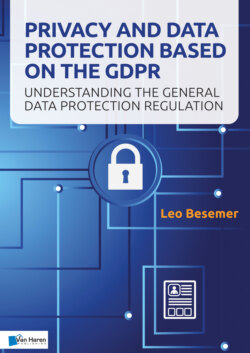Читать книгу Privacy and Data Protection based on the GDPR - Leo Besemer - Страница 13
На сайте Литреса книга снята с продажи.
1.1.1 Human rights law 1.1.1.1 Universal Declaration of Human Rights
ОглавлениеAfter World War II, the UN Commission of Human Rights (UNCHR) started working on what was initially intended as an International Bill of Rights. It was one of the first attempts to make globally enforceable agreements. EU history literature (Diggelman, 2014) describes the tedious discussions between the members of the Committee, representants with very different legal and cultural backgrounds from all regions of the world. This was a time when the right of women to be treated as equals to men was hardly accepted anywhere, a time when governments all over the world had come to regard torture and inhuman treatment as acceptable means to an end.
The Universal Declaration of Human Rights (UDHR) is a milestone document in the history of human rights. The UDHR was proclaimed by the United Nations General Assembly in Paris on December 10, 1948 (General Assembly resolution 217A) as a common standard of achievements for all peoples and all nations. It sets out, for the first time, fundamental human rights to be universally protected. In its preamble the UDHR recognizes that “the inherent dignity and (…) the equal and inalienable rights of all members of the human family is the foundation of freedom, justice and peace in the world.”
The declaration explicitly defines the right to a private life and the freedoms associated with this:
No one shall be subjected to arbitrary interference with his privacy, family, home or correspondence, nor to attacks upon his honor and reputation.
Everyone has the right to the protection of the law against such interference or attacks.
UDHR Article 12
However, the declaration also defines the right to freedom of information and expression:
Everyone has the right to freedom of opinion and expression; this right includes freedom to hold opinions without interference and to seek, receive and impart information and ideas through any media and regardless of frontiers.
UDHR Article 19
These provisions may seem at odds, in particular where the exercise of the rights defined in Article 19 might result in an invasion of privacy, violating Article 12. This potential conflict, however, is reconciled later:
In the exercise of his rights and freedoms, everyone shall be subject only to such limitations as are determined by law solely for the purpose of securing due recognition and respect for the rights and freedoms of others and of meeting the just requirements of morality, public order and the general welfare in a democratic society.
UDHR Article 29(2)
Keeping the balance between the right to information and the rights and freedoms of individuals, however, is a challenge. A thread through the history of privacy law up to the current day.
It took another eighteen years before the United Nations in UN Assembly Resolution 217 (III) agreed upon the International Bill of Human Rights, consisting of the UDHR, the International Covenant on Civil and Political Rights (ICCPR, 1966) and the International Covenant on Economic, Social and Cultural Rights (ICESCR, 1966). The two covenants entered into force in 1976, after a sufficient number of countries had ratified them. The covenants require countries ratifying it to include the principles described in them into their national legislation.
The provision of ICCPR Article 17 of is almost identical to Article 12 of UDHR, but the word unlawful has been added twice:
No one shall be subjected to arbitrary or unlawful interference with his privacy, family, home or correspondence, nor to unlawful attacks upon his honor and reputation.
ICCPR Article 17
The amendment changes the concept of the right to privacy in the sense that governments have the right to intrude on a person’s privacy for reasons explicitly laid down by law.
